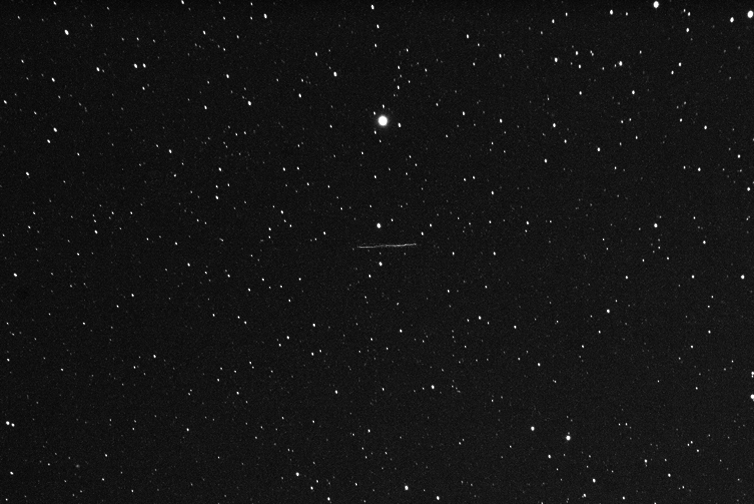
by Charles and Pat Briley

Asteroid 2010 WC9 about 18 hours before its closest approach to Earth (~126,000 miles).
It's the faint streak in the middle of the image. It was only about the size of a football field.
ISO 6400 was necessary to even pick it up this well with our 6" TOA-150 refractor.
Exposure time 6 minutes. During this time, it moved roughly the distance
between New York City and Los Angeles.

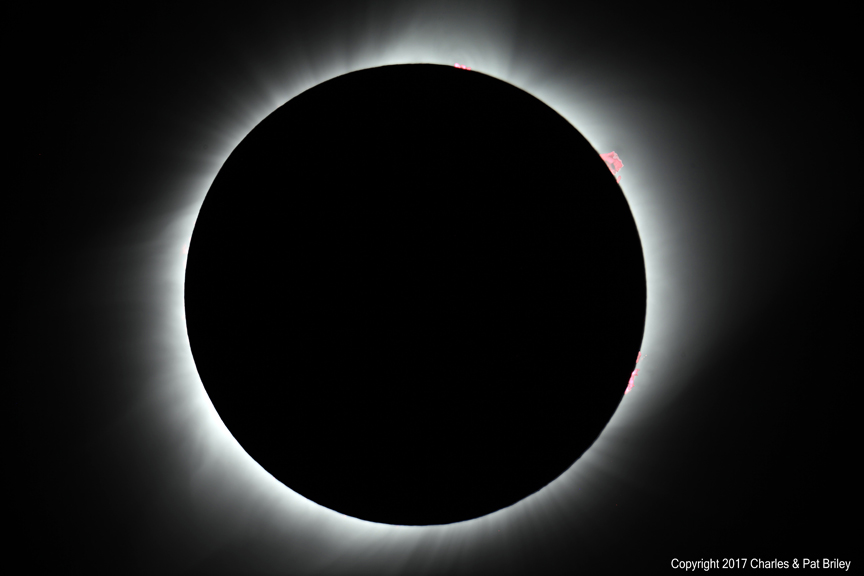
2017 Total Eclipse
Here are some of our 2017 eclipse images.
They were taken from a field near Lyons, Oregon
at a point about 2 miles from the centerline.
The prominences (redder areas) show side views of large
storms on the surface of the sun. Some of the ones visible here are
large enough to fit 8-10 planet Earths - maybe larger.
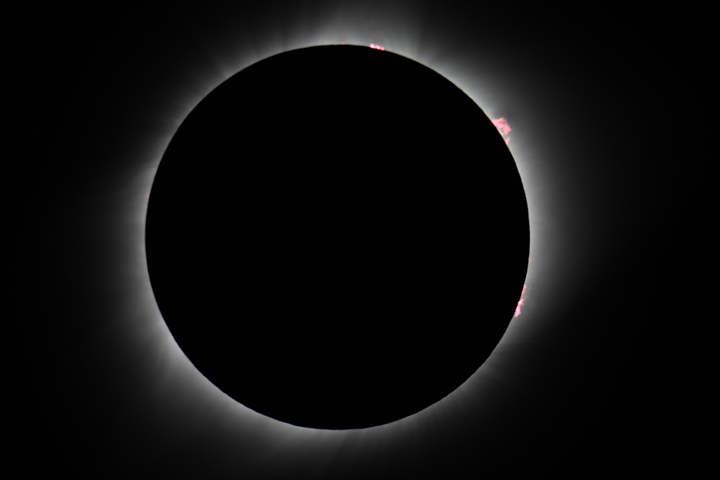
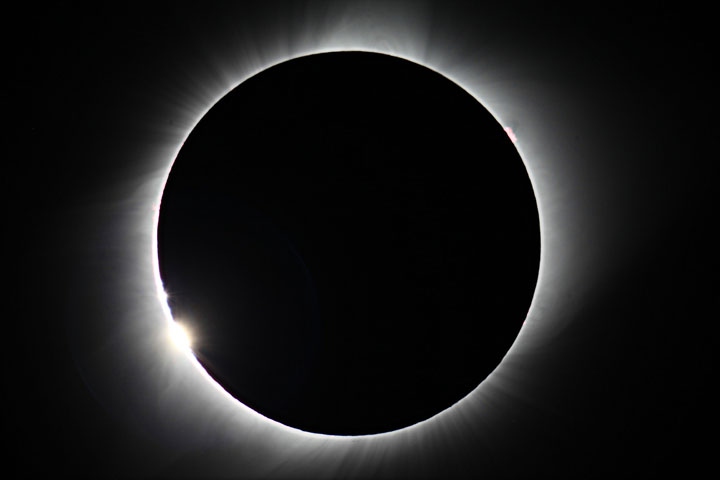
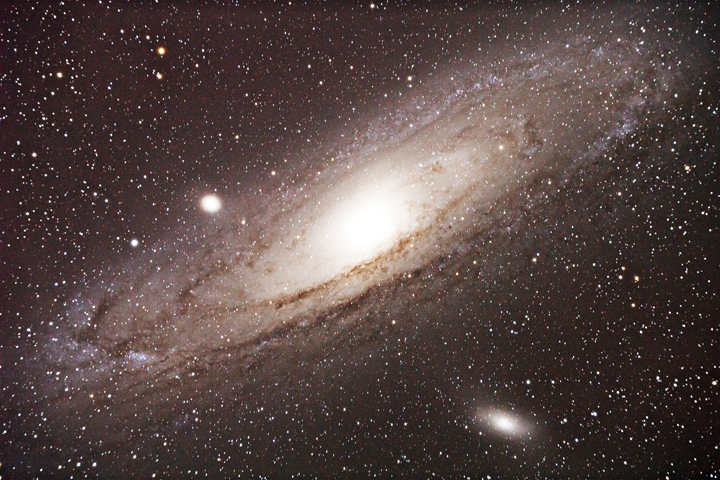
M31 - Andromeda Galaxy
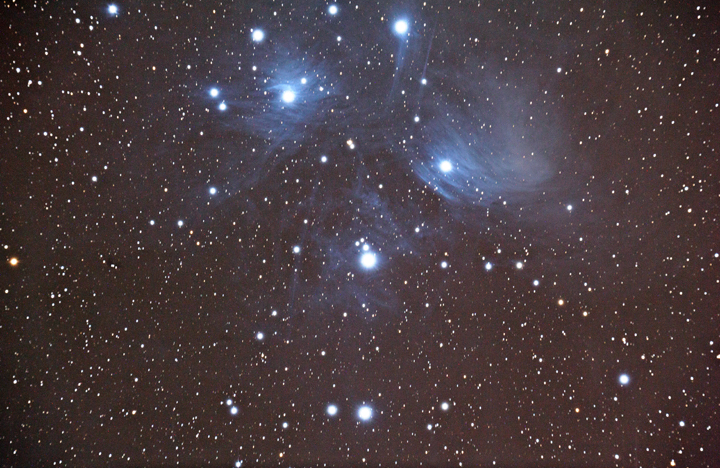
M45 - Pleiades

Venus-Jupiter Conjunction June 30, 2015
Venus was about 48 million miles from Earth.
Jupiter + 4 moons were about 565 million miles from Earth,
or about 12 times farther from Earth than Venus.
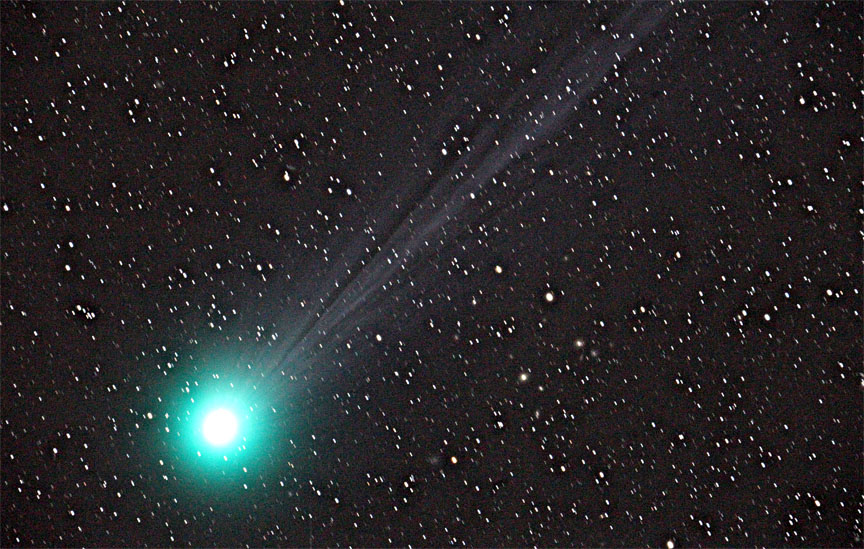
Comet Lovejoy - 2014 Q2
Jan 24, 2015
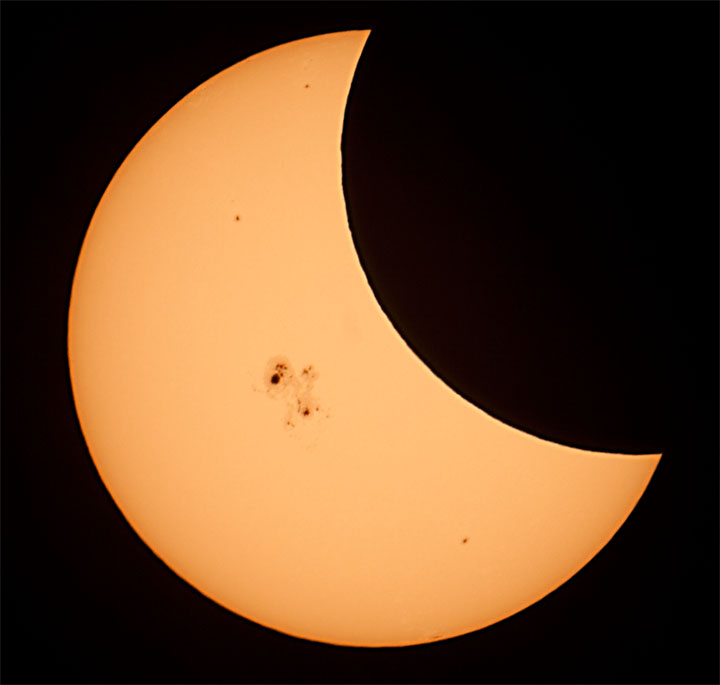
Partial Solar Eclipse
Oct. 23, 2014 - 3:42 pm PDT
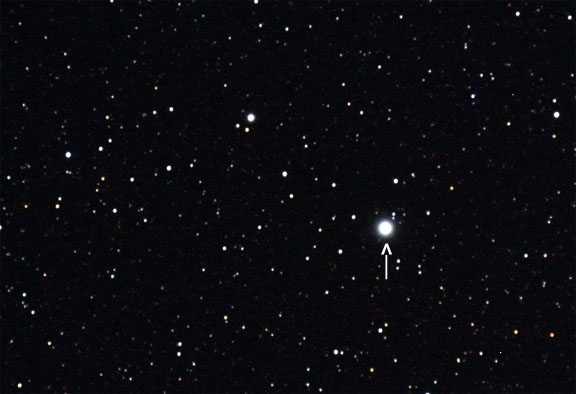
New Nova Delphinus 2013
This was discovered by Japanese amateur astronomer Koichi Itagaki on Aug. 14.
Imaged Aug. 16 with a TOA-150 and a Canon EOS 5D Mark II.
3 minute exposure
Comet 2012 S1 ISON
Tracking comet, letting stars streak
Taken Jan 19, 2013 with 6" refractor and Canon EOS 5D Mark II
It was slightly farther from the sun than the orbit of Jupiter
This is the full frame image.
Comet is within blue circle
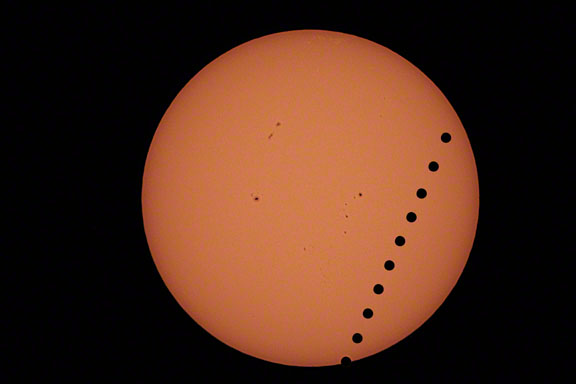
Venus transiting sun on 06/05/2012
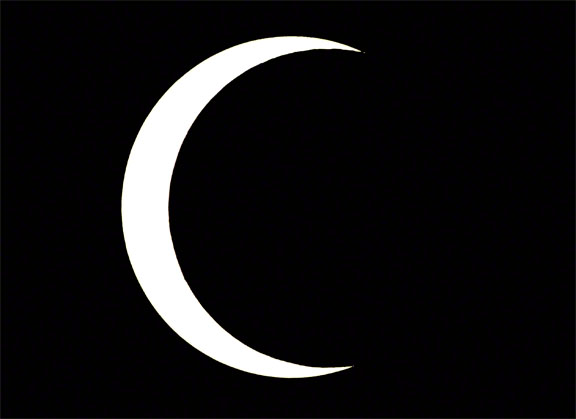
Partial Solar Eclipse
May 20, 2012
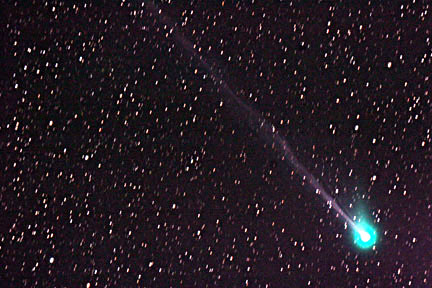
Comet McNaught (2009 R1)
5-minute exposure, June 11, 2010
Mount was tracking comet and letting stars streak
![]()
Comet Lulin (2007 N3)
3-minute exposure, Feb, 23, 2009
Mount was tracking stars and letting comet smear a bit
![]()
Comet Lulin (2007 N3)
3-minute exposure, Feb, 23, 2009
Mount was tracking comet and letting stars streak
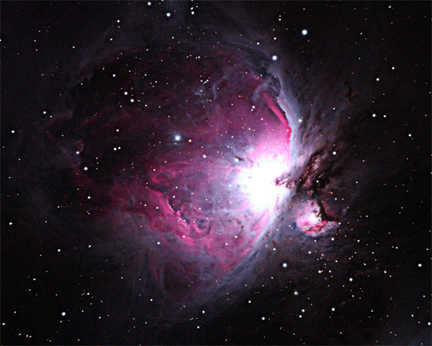
M42 - Orion Nebula
Paramount ME, Takahashi TOA-150, Canon EOS 20DA
3-minute exposure, ISO 1600, 11/26/05
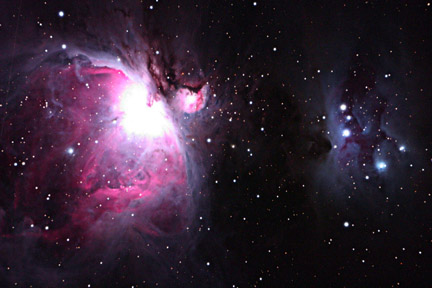
Orion again
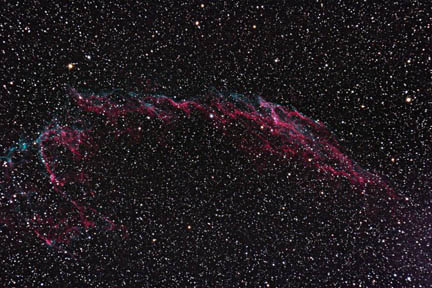
NGC 6992 - Veil Nebula
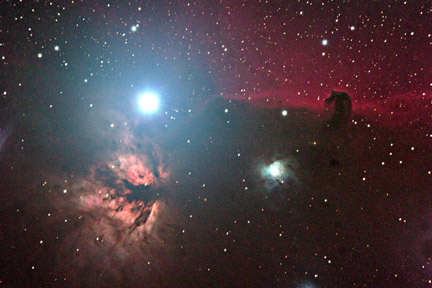
Horsehead Nebula - Barnard 33 - IC 434
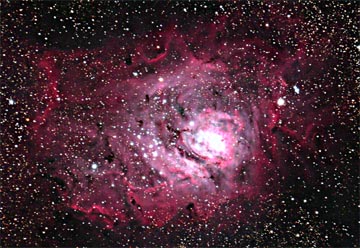
M8 - Lagoon Nebula
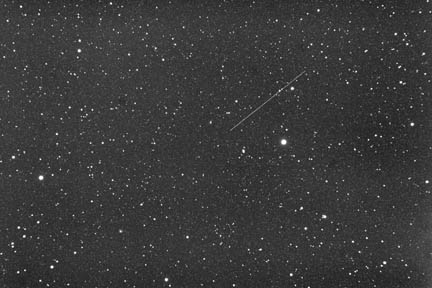
Asteroid 2004 XP14 Flyby
On 07/03/06, this asteroid passed by Earth at a distance of only 269,000 miles,
or slightly greater than the distance between the Earth and the moon.
This 25-minute composite image shows the path it took toward the
upper right corner of the frame as it was streaking away from the Earth,
about 18 hours after closest approach.
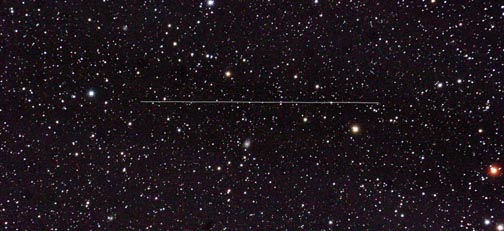
Asteroid 2007 TU24 Flyby
On 01/28/08, this asteroid passed by Earth at a distance of about 334,000 miles.
This 10-minute image was taken a few hours before closest approach.
Its movement was from left to right.
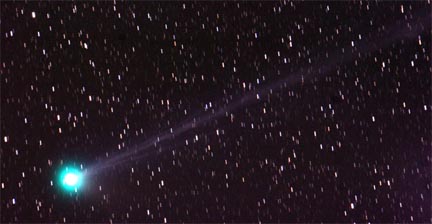
Comet 2006 A1 - Pojmanski
The stars are streaked because the mount was tracking the comet.
The comet was moving north, toward the top of the image.
So the stationary stars appear to be moving south, toward the bottom.
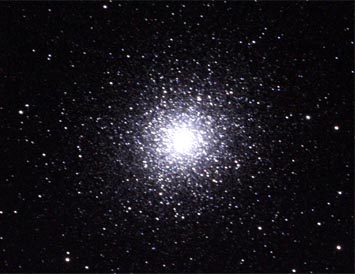
M13 - Globular Cluster in Hercules
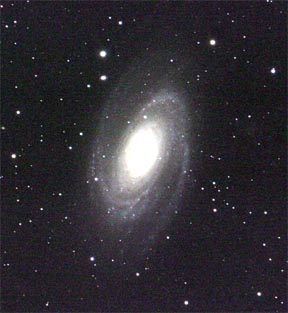
M81 - Spiral Galaxy
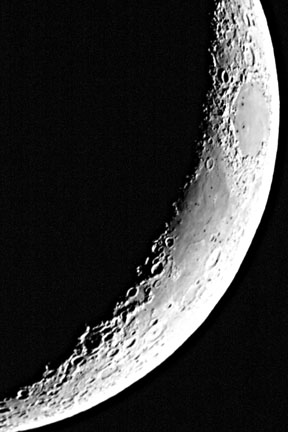
Leonid Meteors
12:45am to 3:45 am, Sunday Nov. 18, 2001
Click image for more information
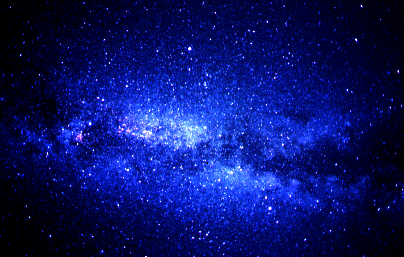
Milky Way
30 minute exposure - July 26, 1998
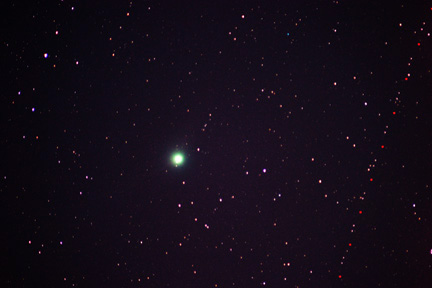
Comet Machholz - 2004 Q2
(with strobing passenger jet)
Dec. 20, 2004
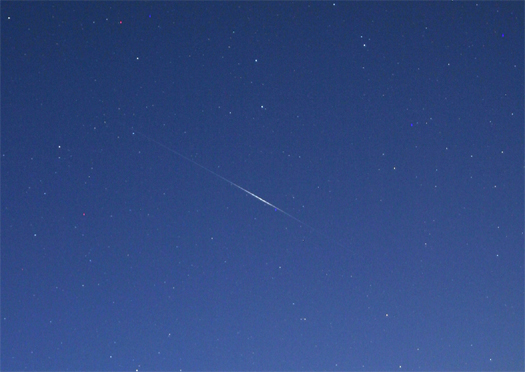
Iridium 66 Flare
Sunlight reflecting off antennae
21:22 PDT July 25, 2005
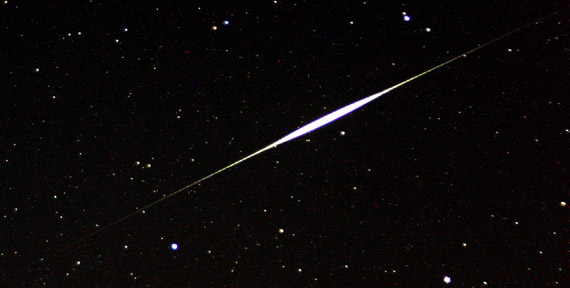
Iridium 53 Flare
Sunlight reflecting off antennae
03:47 PDT July 31, 2005
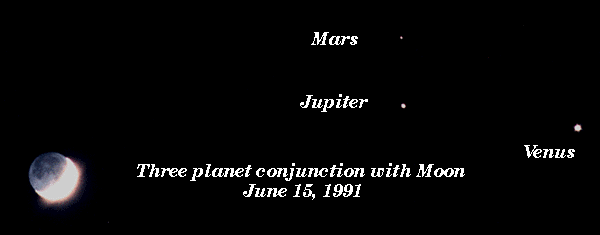
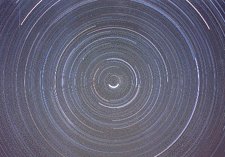
8 Hour Circum-Polar Exposure
with meteor streak (upper left)
Texas Star Party, 1992
All images Copyright © 2000-2024 Charles & Pat Briley
Astronomy - Terrestrial Photos - Weather